RWC 2015: Final eight - who’s got what… and who has not
As the tournament moves into the quarter-final stage, Chris Hewett examines the strengths and the weaknesses of the countries who have made it, and pinpoints their likely match-winners
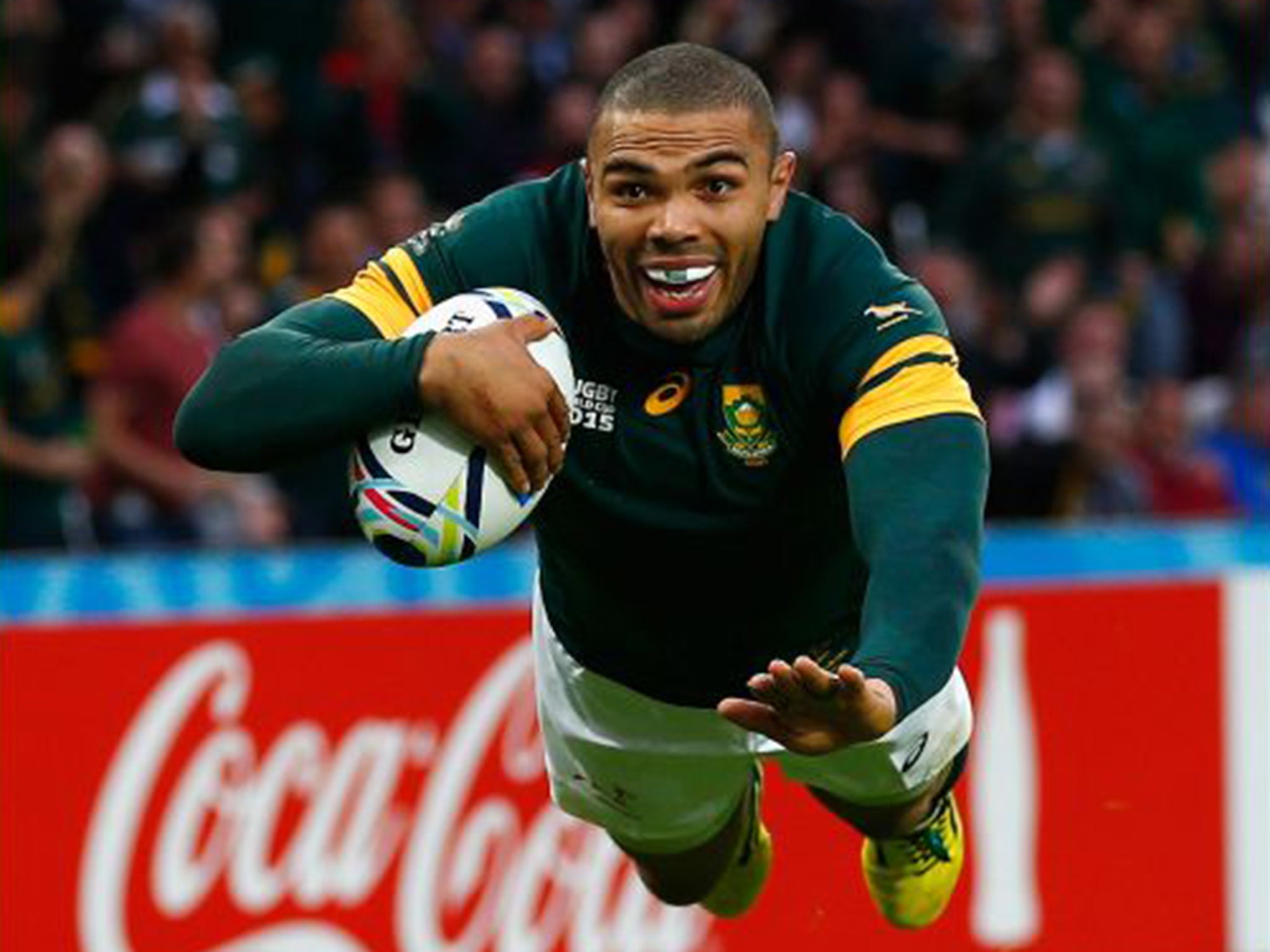
Your support helps us to tell the story
From reproductive rights to climate change to Big Tech, The Independent is on the ground when the story is developing. Whether it's investigating the financials of Elon Musk's pro-Trump PAC or producing our latest documentary, 'The A Word', which shines a light on the American women fighting for reproductive rights, we know how important it is to parse out the facts from the messaging.
At such a critical moment in US history, we need reporters on the ground. Your donation allows us to keep sending journalists to speak to both sides of the story.
The Independent is trusted by Americans across the entire political spectrum. And unlike many other quality news outlets, we choose not to lock Americans out of our reporting and analysis with paywalls. We believe quality journalism should be available to everyone, paid for by those who can afford it.
Your support makes all the difference.South Africa
Strengths
The Springboks’ intensity has been off the scale since the extraordinary events in Brighton in the first tranche of pool matches, when Japan outwitted, outlasted and ultimately outscored them. Never ones to take an insult lying down, they have reasserted themselves through their traditional calling card of high-end physicality.
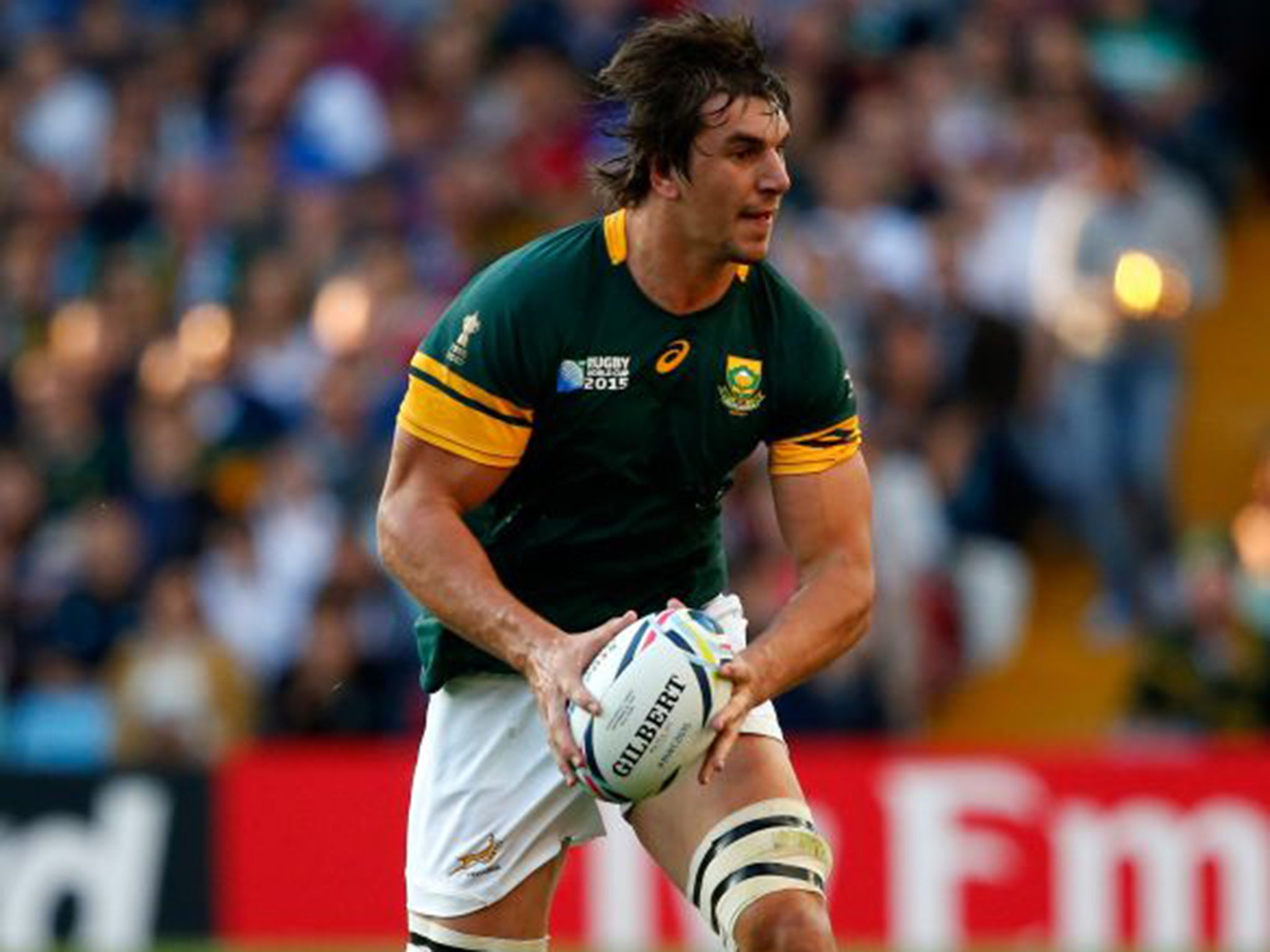
Weaknesses
They can sail very close to the wind on the discipline front, especially when the ferocious flanker Schalk Burger is putting himself about in the loose. Is the outside-half Handre Pollard bombproof under pressure? Does the coach Heyneke Meyer always get it right on his bench calls?
Main man Eben Etzebeth (lock)
Wales
Strengths
Leaving aside the players who are broken, they are as fit as any side left in the competition. They also have some world-class talents – Alun Wyn Jones, Toby Faletau – performing at the peak of their powers. Also, the new half-back pairing of Gareth Davies and Dan Biggar is working for them.
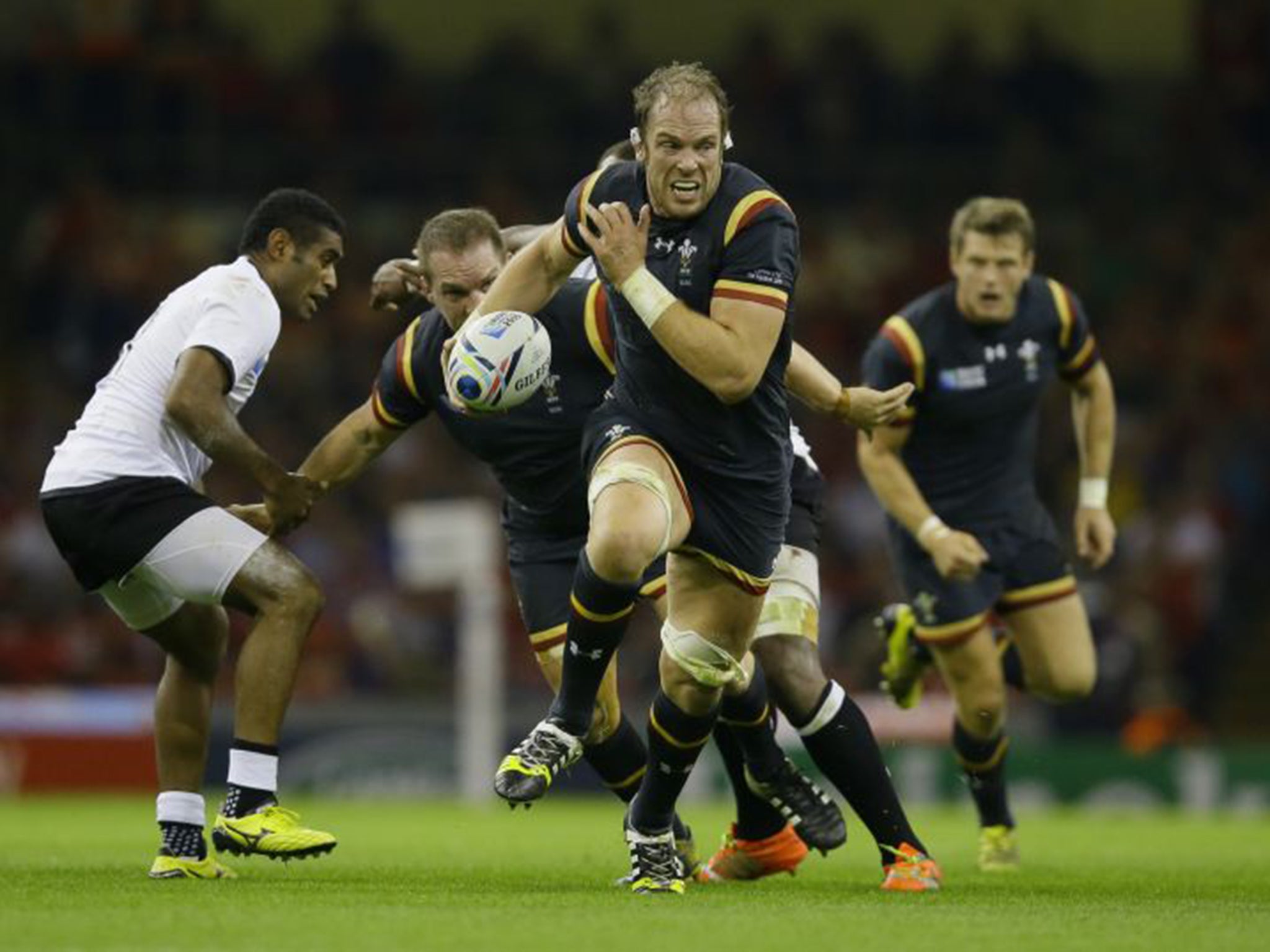
Weaknesses
Leaving aside the fit blokes, they are broken almost beyond repair. Full-backs, wings, centres… they are down to the last scrapings, thanks to a horrible run of injuries. Up front, the scrummaging is suspect; out back, experienced hands are butchering opportunities. What’s more, Faletau is attracting too much attention from referees.
Main man Alun Wyn Jones (lock)
New Zealand
Strengths
Awash with attacking options – you know you’re in a good place when two of Ma’a Nonu, Conrad Smith, Sonny Bill Williams and Malakai Fekitoa have to miss out – the champions are terribly difficult to subdue. Ben Smith’s form at full-back makes him the player of the tournament to date.
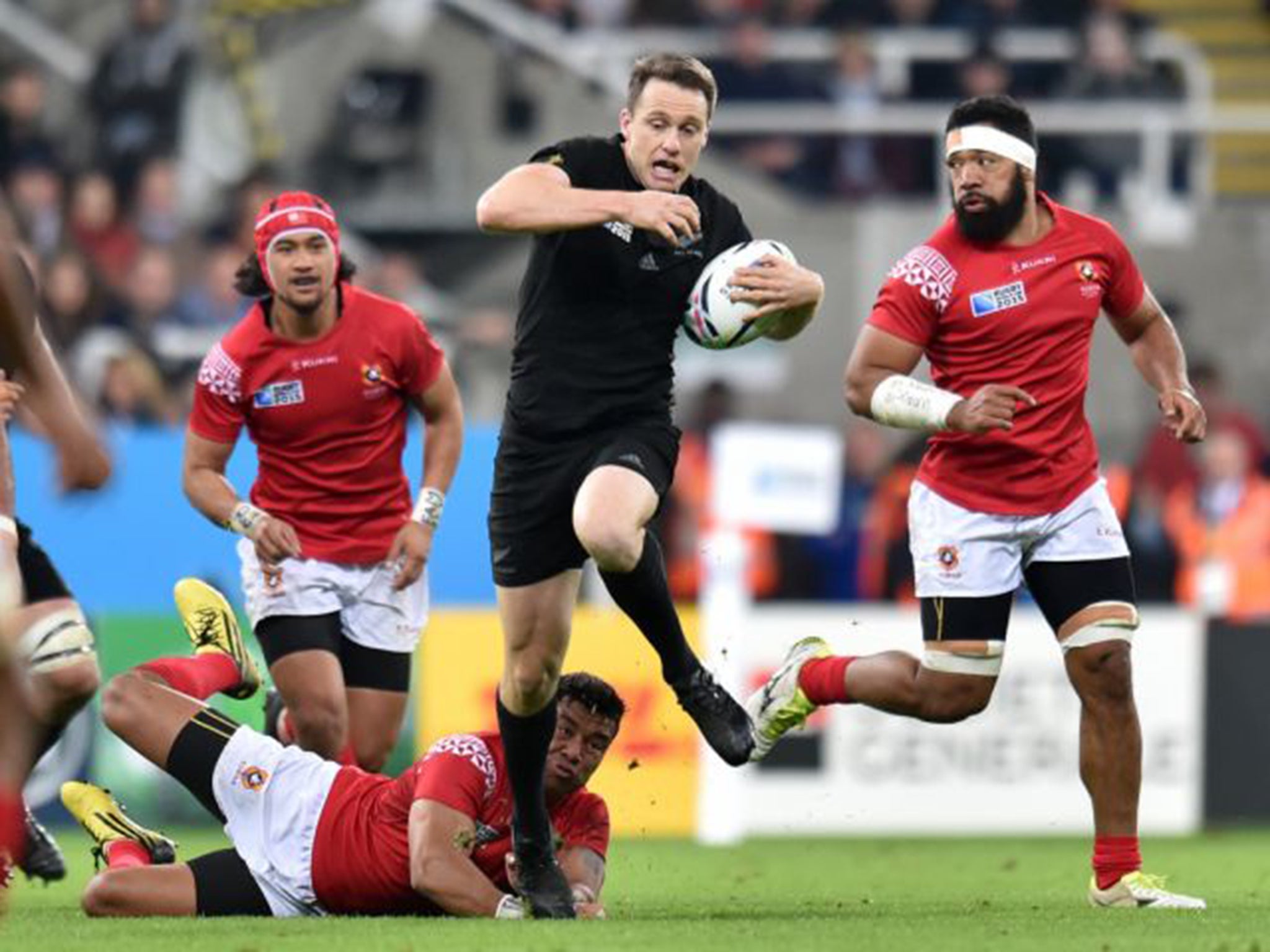
Weaknesses
They cannot scrummage – at least, not with any consistency. Also, it is not entirely clear that their breakdown work is as flawless as we have come to expect. Richie McCaw will put it right when necessary, no doubt, but every hint of frailty is manna from heaven to the opposition.
Main man Ben Smith (full-back)
France
Strengths
Probably the best scrummaging side in the game, they have what it takes to dominate all three southern hemisphere superpowers at close quarters. If they win some set-piece penalties, Scott Spedding will capitalise with his exceptional long-range kicking. They also have Thierry Dusautoir and Louis Picamoles in the back row.
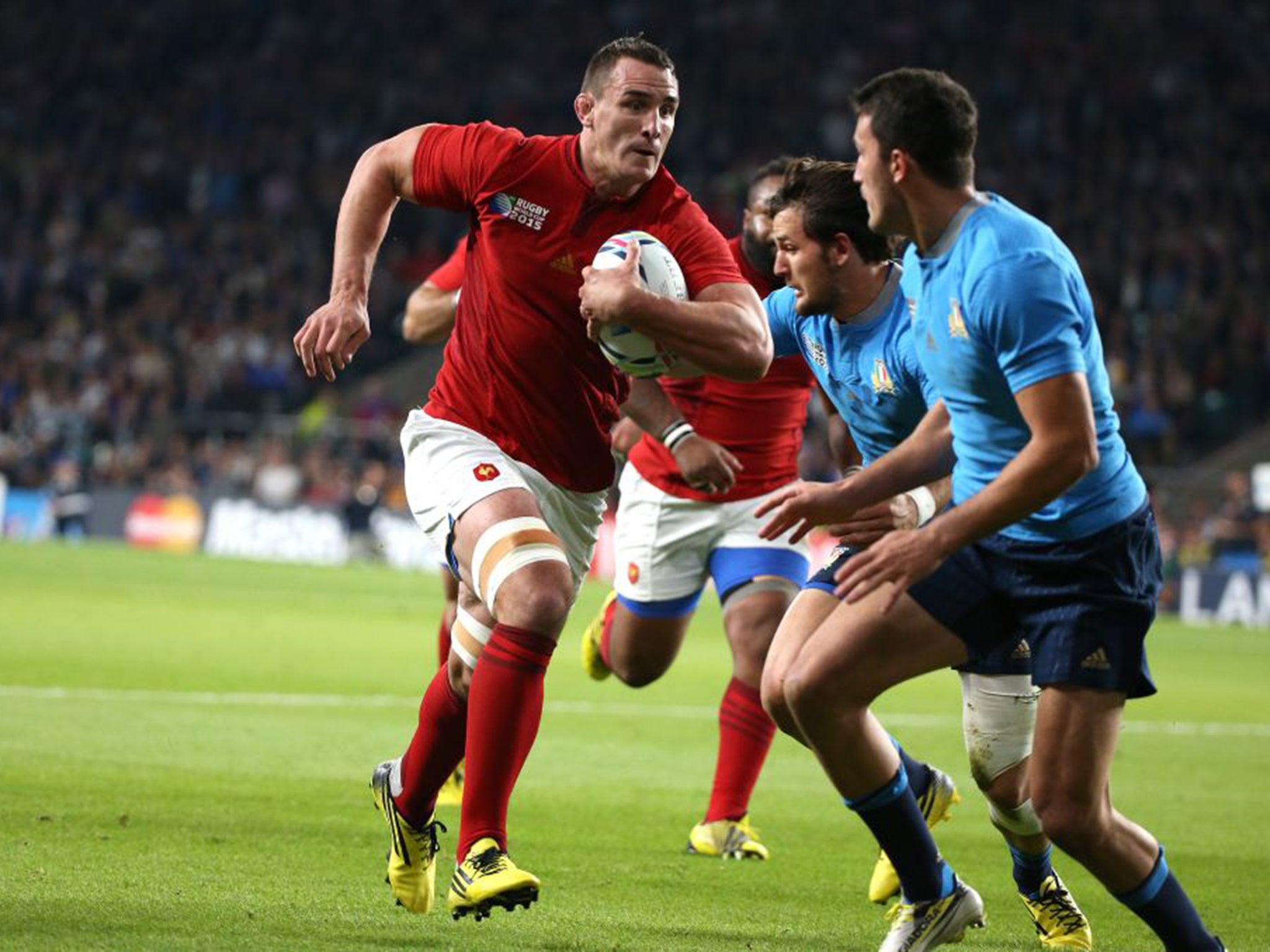
Weaknesses
The loss of the wing Yoann Huget deprived Les Bleus of a significant attacking threat, and we have not seen enough of Wesley Fofana or Noa Nakaitaci in broken field play. Mathieu Bastareaud’s midfield game fell through the floor against Ireland, resuscitating the suspicion that he is a flat track bully.
Main man Louis Picamoles (No 8)
Ireland
Strengths
Like the Welsh, they know their way round their coach’s game-plan. Some people condemn it as too narrowly focused, but when it is executed with both passion and precision, as it was against France on Sunday, it takes some handling. They can also bank on ridiculous levels of travelling support.
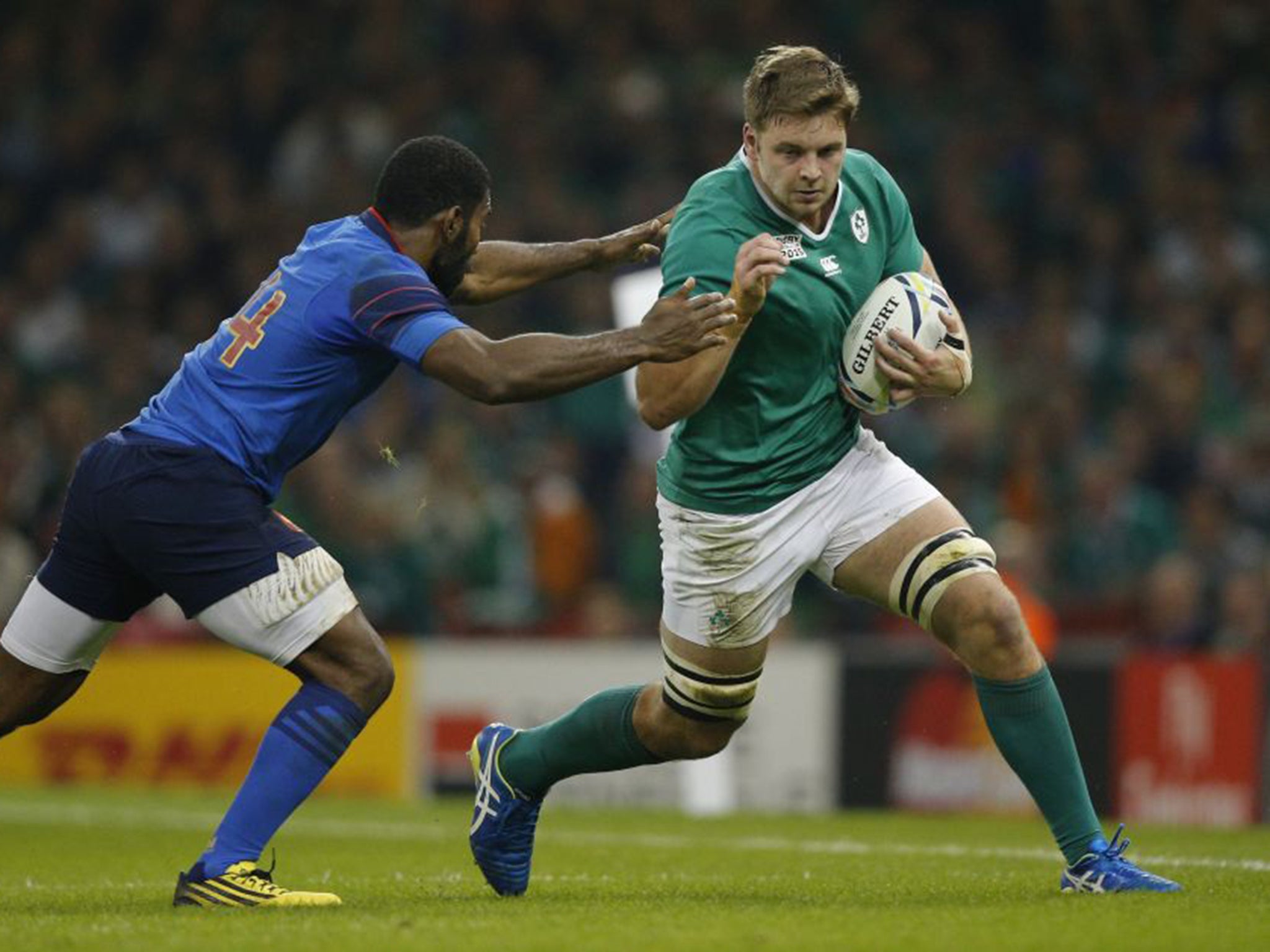
Weaknesses
Brian O’Driscoll’s ghost continues to haunt the No 13 channel – if Keith Earls has done some nice things, he has also dropped a clanger or two – while the body count in the France game was heavy indeed. Will the goalkicking hold up if Jonny Sexton breaks down and what if Paul O’Connell has to pull out?
Main man Iain Henderson (lock)
Argentina
Strengths
They used to be found in one area and one only, but that is no longer the case. The Puma scrum still works like a dream, but there is also more craft and creativity away from the pack, thanks to their fly-half, Nicolas Sanchez, and some adventurous wings. They kick their goals, too.
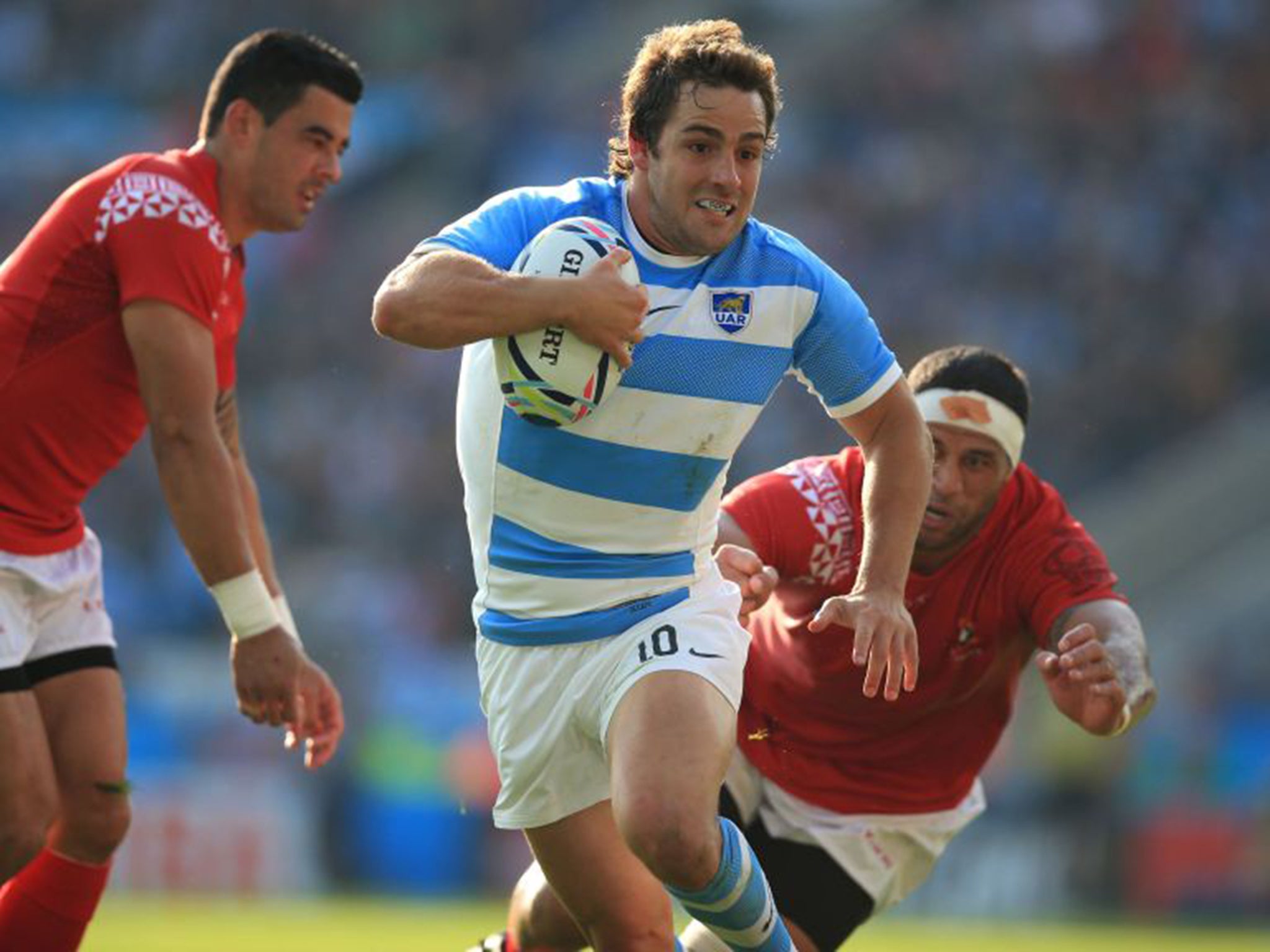
Weaknesses
Too few for Ireland’s comfort. The South Americans’ biggest problem is one of discipline: they still find it too easy to put themselves on the wrong side of the referee, particularly around the tackle area. Often at a language disadvantage, they often suffer from a reputation that goes before them.
Main man Nicolas Sanchez (fly-half)
Australia
Strengths
Togetherness, for starters. Michael Cheika, head coach for less than a year, has worked wonders on the “band of brothers” front. They also have scope – their victories over England and Wales proved they can win every which way – and a good percentage of the tournament’s best players are dotted around their side.
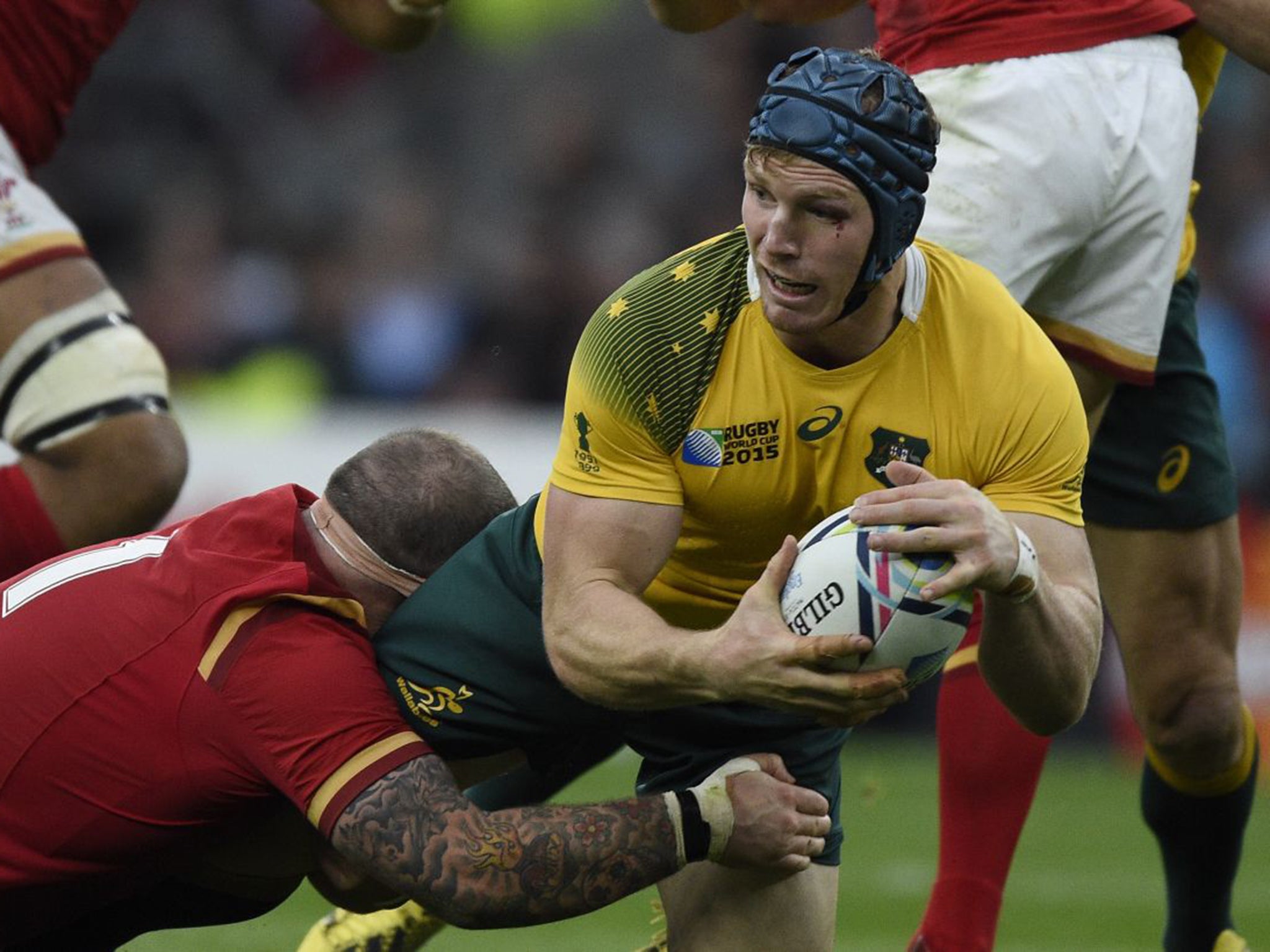
Weaknesses
The set-piece work may be better than it was (which is not saying a fat lot), but it is still some way short of a Rolls-Royce operation. They are not in absolutely premium nick at scrum-half, either: both Will Genia and Nick Phipps have looked fragile at times.
Main man David Pocock (No 8)
Scotland
Strengths
Urgency is the key. The two southern hemisphere imports in the back row, John Hardie and Josh Strauss, have upped the ante in the loose – Hardie especially, with his predatory hunting instincts and his footballing brain. Working in close cahoots, Greig Laidlaw is a game manager of considerable quality.
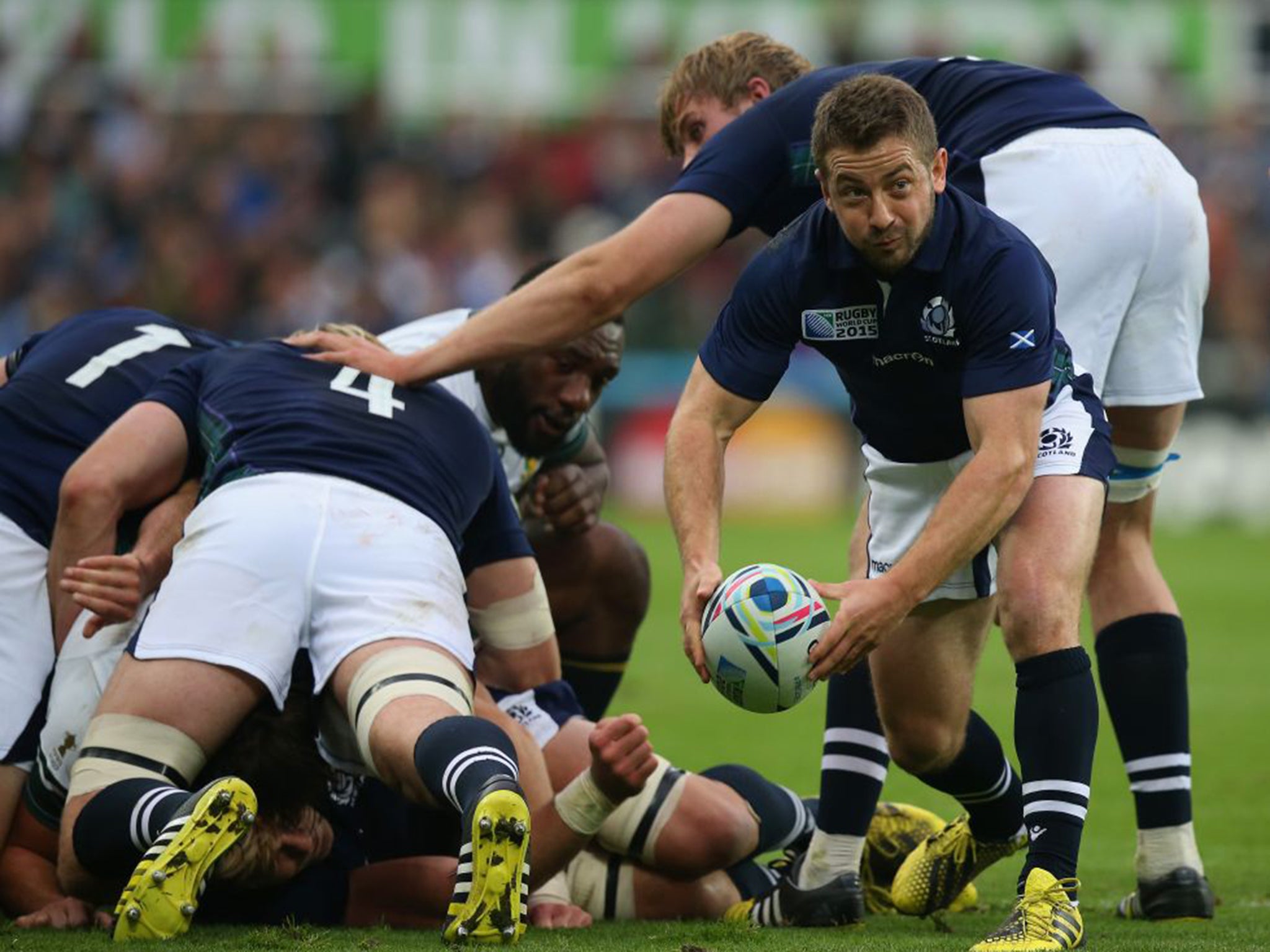
Weaknesses
The back line is missing a beat here and there, and there are serious issues in defensive organisation on the evidence of their tight win over Samoa on Saturday. The Wallabies will make a rare old mess of the Scottish midfield unless those concerned beef up their tackling game.
Main man Greig Laidlaw (scrum-half)
Knockout details and the World Cup in numbers
Quarter-finals
Saturday:
South Africa v Wales, Twickenham, 4pm, ITV
New Zealand v France, Millennium Stadium, 8pm, ITV
Sunday:
Ireland v Argentina, Millennium Stadium, 1pm, ITV
Australia v Scotland, Twickenham, 4pm, ITV
Semi-finals
Saturday 24 October:
South Africa/Wales v New Zealand/France, Twickenham, 4pm, ITV
Sunday 25 October:
Ireland/Argentina v Australia/Scotland, Twickenham, 4pm, ITV
Bronze final
Friday 30 October:
Semi-final loser 1 v Semi-final loser 2, Olympic Stadium, 8pm, ITV
Final
Saturday 31 October:
Semi-final winner 1 v Semi-final winner 2, Twickenham, 4pm, ITV
World Cup in numbers
Most points
60 Greig Laidlaw (Scotland)
58 Ayumu Goromaru (Japan)
56 Bernard Foley (Australia)
51 Nicolas Sanchez (Argentina)
46 Handre Pollard (South Africa)
Most tries
5 Bryan Habana (South Africa); Julian Savea (New Zealand)
4 D T H van der Merwe (Canada); Gareth Davies (Wales); J P Pietersen (South Africa); Nehe Milner-Skudder (New Z)
Most penalties
13 Ayumu Goromaru (Japan)
12 Bernard Foley (Australia); Dan Biggar (Wales)
11 Greig Laidlaw (Scotland)
Most conversions
12 Dan Carter (New Zealand)
11 Greig Laidlaw (Scotland)
8 Handre Pollard (South Africa); Ian Madigan (Ireland); Nicolas Sanchez (Argentina); Owen Farrell (England)
Most yellow cards
2 Campese Ma’afu (Fiji)
Most red cards
1 Agustin Ormaechea (Uruguay)
Total tries scored
231
Total drop goals scored
3
Total attendance so far
1,881,023
Join our commenting forum
Join thought-provoking conversations, follow other Independent readers and see their replies
Comments